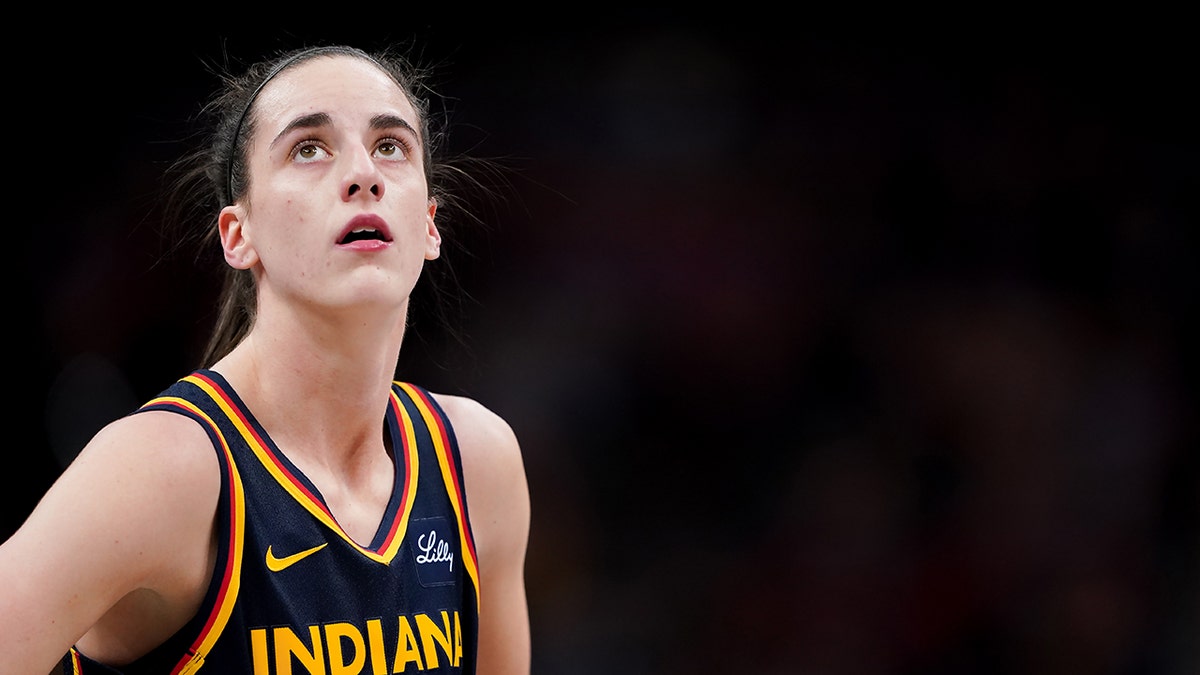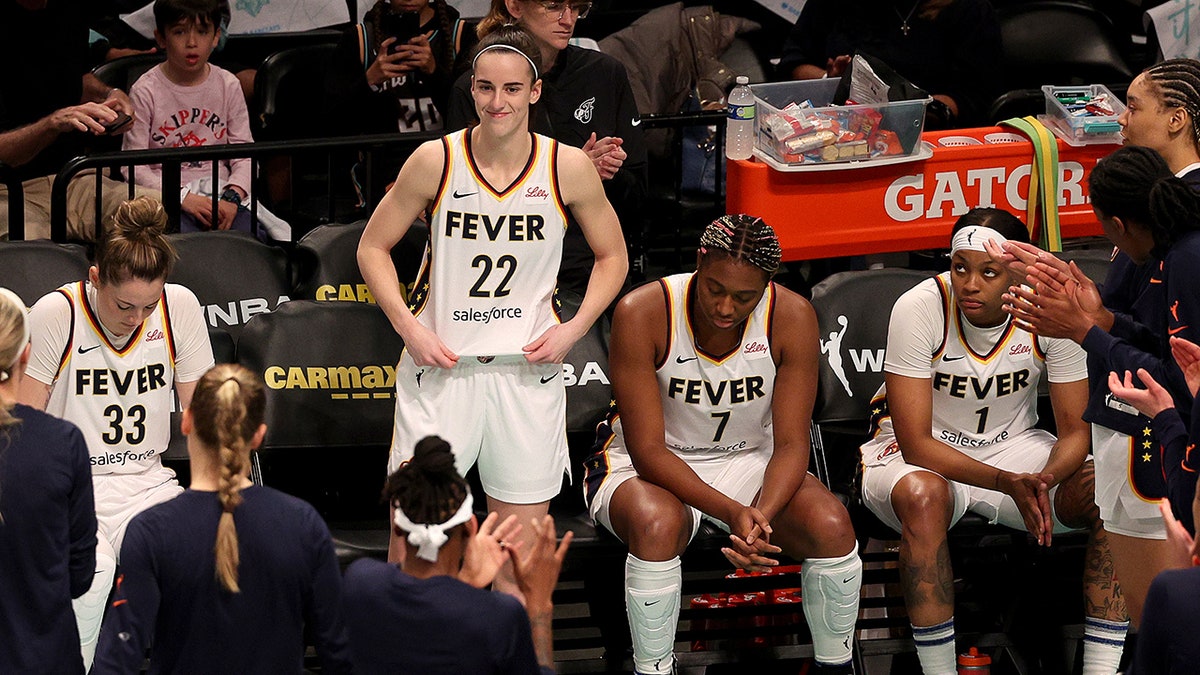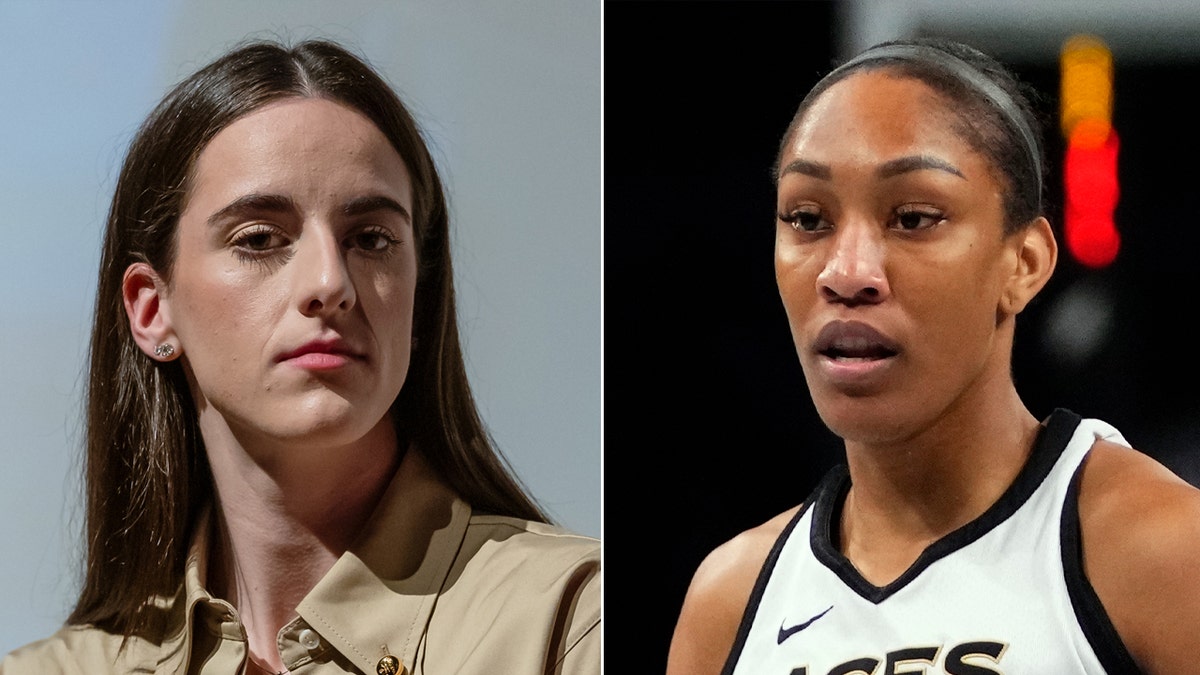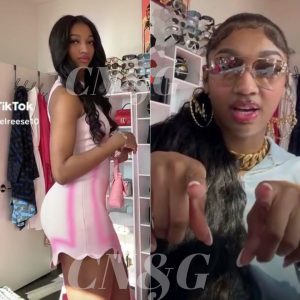Caitlin Clark owes some of her “worth” as a marketable WNBA player to her race and 𝓈ℯ𝓍uality, according to former ESPN host Jemele Hill.
a Los Angeles Times report suggested.
The Indiana Fever player took the country by storm the past year after setting all-time records for scoring during her senior season of college basketball and becoming the number one pick in the 2024 WNBA draft.
Clark’s success has since garnered massive media attention, with thousands attending her games and millions watching from home. She also signed a lucrative $28 million Nike sponsorship deal shortly after graduation.

Caitlin Clark #22 of the Indiana Fever walks across the court in the first quarter against the New York Liberty at Gainbridge Fieldhouse on May 16, 2024 in Indianapolis, Indiana. (Dylan Buell/Getty Images)
However, the LA Times wrote Clark’s success “draws questions of race and equity” in a league comprised 70% of Black players and nearly a third comprised of LGBTQ players.
CAITLIN CLARK GETS FIRST TASTE OF WNBA VICTORY AS FEVER WIN FINAL PRESEASON GAME OVER DREAM
“We would all be very naive if we didn’t say race and her 𝓈ℯ𝓍uality played a role in her popularity,” the Atlantic writer Jemele Hill told the LA Times. “While so many people are happy for Caitlin’s success — including the players; this has had such an enormous impact on the game — there is a part of it that is a little problematic because of what it says about the worth and the marketability of the players who are already there.”
Hill specifically called out brands like Nike for playing a part in ignoring more diverse players, arguing that “Black women are often erased from the picture.”

Clark’s success is forcing discussions on race in the WNBA, a Los Angeles Times report read. (Elsa/Getty Images)
“There’s plenty of room to highlight and celebrate Caitlin Clark’s popularity while also discussing ways in which to not erase Black women from a league that they have built and continue to build,” Hill said.
Nicole Melton, co-director of the Laboratory for Inclusion and Diversity in Sport at the University of Massachusetts, also described Clark’s popularity as pushing a “comfortable” image.
“Cailtin fits a very comfortable narrative for a lot of people in the United States,” Melton said. “She comes from the heartland. She’s an amazing talent. She’s also a white, straight woman, right? There’s not a lot of things that would make people feel uncomfortable with that person being successful.”
The LA Times article followed similar comments from Las Vegas Aces center A’ja Wilson earlier this month when she suggested Clark’s race is a factor in her popularity.

WNBA player Aja Wilson claimed Clark’s race was a “huge thing” in how popular she became. (Getty Images)
CAITLIN CLARK’S HIGH SCHOOL COACH ‘SO PROUD’ AFTER IOWA STAR’S WNBA DRAFT SELECTION: ‘PRETTY SURREAL’
“I think it’s a huge thing. I think a lot of people may say it’s not about Black and White, but to me, it is,” Wilson said. “It really is because you can be top-notch at what you are as a Black woman, but yet maybe that’s something that people don’t want to see.”
Wilson added, “They don’t see it as marketable, so it doesn’t matter how hard I work. It doesn’t matter what we all do as Black women, we’re still going to be swept underneath the rug. That’s why it boils my blood when people say it’s not about race because it is.”





